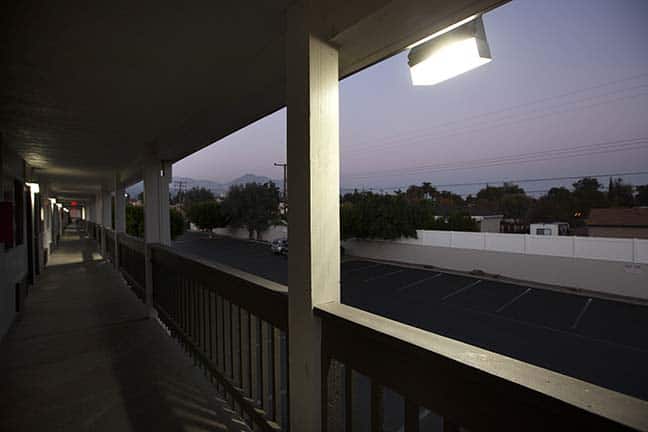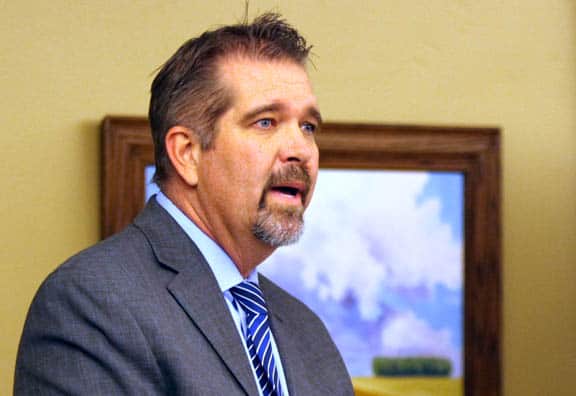New motel ordinance set to become law

by Steven Felschundneff | steven@claremont-courier.com
Following months of planning, and years of residents pleading for action, a new set of rules aimed at curbing the seemingly entrenched problem of sex work and criminal activity at Claremont’s freeway motels is set to become law.
By a 5-0 vote Tuesday night, the Claremont City Council approved a new ordinance that proprietors of all motels and hotels must abide by if they wish to continue operating in the city. The vote creates an new a chapter in the city’s municipal code, replacing the old motel ordinance. The new law could go into effect as soon as April 28.
Reevaluating the motel ordinance was identified as a goal during the Claremont City Council’s January 2022 priorities workshop.
“During the Workshop, many residents expressed concern regarding frequent criminal activity occurring in and around motels located near the I-10 Freeway, including prostitution and human trafficking,” read a staff report from Katie Wand, assistant to the city manager. “The Police Department has also seen a rise in narcotic sales, gang activity, and violent crimes against persons in and around these motels.”
There are several provisions of the new ordinance:
– Prospective guests would have to present valid government identification and a credit or debit card before checking in. An employee would then visually verify the card belongs to the guest and make a scan of the card. A credit card verification would still be required even if the guest pays for the room with cash.
– To maintain sanitation, management must have a daily cleaning schedule that includes removing trash from the room. The planning commission added the rule that linens should be changed every three days even if a guest does not vacate the room. Linens and towels would also be replaced when occupancy turns over.
– The hotels and motels will also have to maintain a register with detailed guest information and keep those files for four years, and must allow city officials to inspect the records.
– Management would be required to issue parking permits that must be displayed on the dashboard of the guest’s car. Visitors would also have to obtain parking permits.
– Common areas including parking lots and hallways must be monitored with closed circuit television cameras that have the ability to record. The recordings would need to be retained for 90 days and be available for inspection.
– No one can stay in the same room for 30 consecutive days, or 60 days in a 180-day period. Minimum stay would be 18 hours for motels and overnight for hotels.
With the understanding that each motel or hotel will have its own business model, the ordinance leaves the door open for managers to receive a variance from certain rules using the conditional use permit process. Only select provisions in the code could be avoided through this process, such as the minimum and maximum stay limits. Other rules, including the credit card requirement and guest register, are not subject to modification by owners.
The ordinance will have a second reading during the March 28 City Council meeting and will go into effect 30 days later. Once it becomes law, motel operators will have 90 days to adopt the new policies, with the exception of the rules that require physical alteration to the property itself, for which they will have a year to comply.
The council made few changes to the hotel and motel ordinance approved by the planning commission last month, opting to trust the document that resulted from hours of commission, committee and staff work. It did choose to expedite the conditional use permit process, which is part of the new rules, and instructed city staff to charge a flat fee of $1,250 to process CUP applications. Typically the city collects a $2,500 deposit to process a conditional use permit and commonly exceeds that amount in staff time alone, resulting in the applicant having to come up with additional funds. As such, the flat fee offered to the hotel and motel operators is a sizable subsidy from the city, according to City Manager Adam Pirrie.
Most notably, the council opted to remove language from the ordinance that stated calls to the police initiated by the motel operators themselves, would “generally” not be used against that motel when evaluating whether the establishment was a nuisance.
That provision had been added by city staff as a way to encourage motel operators to report crime, effectively countering the concern that doing so might somehow get them into hot water with code enforcement.
A number of commenters disagreed, including police commissioner Caleb Mason, who argued that the call for service data was precisely how the city would identify the motels that remain problematic. In removing the passage, the council directed city staff and the police to engage in an ongoing conversation with the motel operators so they understood the importance of letting the police know when crime occurs on their property.









0 Comments